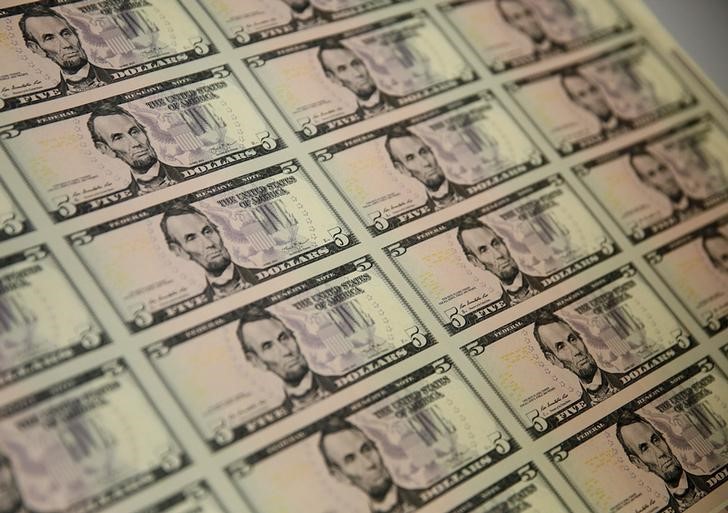* Dollar slumps against yen after Trump's latest comments
* U.S. currency extends losses after two-day G20 finance meeting
* Yen helped by prospects of tweak in BOJ's policy
By Daniel Leussink
TOKYO, July 23 (Reuters) - The dollar slumped against major peers on Monday, knocked lower by U.S. President Donald Trump's comments on the greenback's strength while the yen spiked on reports Japan's central bank is debating moves to reduce its massive monetary stimulus.
The dollar extended losses after CNBC reported on Friday that Trump was worried the Federal Reserve will raise interest rates twice more this year. Trump said the Fed's policy tightening and the strong dollar could hurt the U.S. economy. dollar index .DXY , a measure of its value against a basket of six major currencies, was down 0.1 percent at 94.327 on Monday, slipping further from a one-year high of 95.656 touched on July 19.
Against the yen, the dollar fell to two-week lows of 110.75 yen, having lost more than two percent from its six-month peak of 113.18 hit less than a week ago.
It was last off about 0.5 percent at 110.95 yen JPY= .
The yen rose after Reuters and other media reported that the Bank of Japan is actively discussing changes to its policies. BOJ is scheduled to hold its next monetary policy meeting on July 30 and 31.
"The dollar/yen has broken below its trend line support at around 110.40. Ahead of the BOJ's policy meeting next week, the dollar/yen is likely to test lower," said Shuntaro Ikeshima, chief manager of forex and financial products trading division at Mitsubishi UFJ Trust and Banking Corp.
Against the euro EUR= , the dollar slipped 0.2 percent to $1.1742 per euro.
At a weekend meeting in Buenos Aires, finance ministers and central bank governors from the world's 20 largest economies called for stepped-up dialogue to prevent trade and geopolitical tensions from hurting growth. meeting came amid an escalating trade dispute between the United States and China, which have so far slapped tariffs on $34 billion worth of each other's goods.
Trump raised the stakes on Friday with a threat to impose tariffs on all $500 billion of Chinese exports to the United States unless Beijing agrees to major structural changes to its technology transfer, industrial subsidy and joint venture policies. the moment, we don't know what kind of pressure or comments could come from the U.S. side," said Osamu Takashima, head of G10 FX strategy, Japan at Citigroup (NYSE:C) Global Markets Japan.
"At the same time, U.S. yields look like they are bottoming out. The reason why President Trump is becoming very nervous on the U.S. dollar is because the Fed, led by Chair (Jerome) Powell, is continuing policy firming. Under such circumstances, the fundamentals look rather positive for the U.S. dollar overall," he said.
The Canadian dollar CAD=D3 traded nearly flat against the U.S. dollar, changing hands at 1.3126 Canadian dollars.
It had rallied about 1.4 percent on Friday after strong retail sales and inflation data reinforced expectations for another interest rate hike by the Bank of Canada this year.
